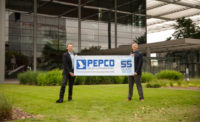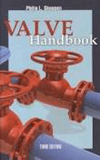Business in an accelerated digital age
Consumer digital activity is at an all-time high, what do you need to do to keep up?




The age of technology has been upon us for quite some time, but as the industry navigates through COVID-19, the push for digital presence is stronger than ever. Suppliers, manufacturers and contractors throughout the PHCP-PVF supply chain are facing challenges like nothing seen before. As essential businesses, they are not only having to deal with the health and safety risk, but also an economic temperature pointing towards a recession that many are comparing to 2008.
Thankfully, about half of businesses in the mechanical systems sector report that business is on schedule, some say it is delayed and less than 20% are reporting cancelled business, based on a survey conducted by the research division of Supply House Times’ parent company, BNP Media, Clear Seas Research in April.
Most businesses are continuing to manufacture, ship and supply products and services; they just have to do so using new and innovative ideas.
VIRTUAL COMMUNICATION AND ADDRESSING RESISTANCE TO CHANGE
Open communication with customers and employees has been key to keeping businesses going. Mark Herbert, CEO at Incentive Solutions, explains that businesses should be focused on finding out customer needs.
“How are they being affected by this?” he asks. “What are the biggest needs they have? The brands and businesses that can provide stability and creative solutions for their customers during disruption are going to be the brands that people trust and choose to work with afterwards.”
Distributors and manufacturers, as well as customers and suppliers, are used to interacting face-to-face; that’s how many in this industry like to do business. So, how do businesses continue sales and relationships when face-to-face isn’t an option?
“The best thing distributors can do is to get creative with helping their customers shift to more digital communication,” Herbert says. “One of the challenges I’ve seen our customers specifically facing, is that each of their customers are at different levels of digital knowledge and acceptance.”
After determining what aspects of employees’ jobs can be done remotely and/or digitally, companies need to invest in training. Training employees to make these changes and training customers to be comfortable with new ways of buying is important for every business.
“You have to get people trained and educated on your product, your brand, your value propositions and now is a good time to do that; people are home and they can take some time to do that training,” Herbert says.
While the PHCP-PVF industry is still busy, there are many customers who are spending more time at home.
“The average person is probably saving an hour of commute time every day, so that time can be used more productively,” Herbert says. “Customers and employees are available. You have to do your part to bring them training and information on how you will continue business practices digitally.”
Getting an industry with face-to-face interaction engrained in them to be more comfortable with phone call, video and email interactions is an important step one.
IT’S TIME TO JUMP ON THE SOCIAL MEDIA TRAIN
Internally, companies are utilizing video conferences, email and phone calls, but what other digital platforms should be used to reach customers? Herbert, like other marketing professionals in the current climate, says social media is more important than ever.
“The use of social media platforms like LinkedIn, especially in the business realm, is important,” he says. “People have more downtime to scroll through content online and read articles. I mean, I’ve been spending more time doing that than I would in a normal work week. What you’re putting out there digitally is probably better received today than it was a month and a half ago.”
According to DirectiveGroup, Facebook use is at an all-time high; time spent on the app is up 70% and live viewing has doubled. On the same token, many advertisers are reducing their spend, creating opportunity for other companies to reach more people.
Jim Hinshaw, HVAC vertical marketing manager for Boston based contractor best practices group, Service Nation, also explains that social media is key.
“Social media is absolutely critical,” he says. “A common problem with the trades is they don’t like social media. Plumbers, HVAC technicians, etc., go, ‘Why would I want to share with anybody what I had for lunch?’ But it goes much further than that. People are making decisions based on things they see on social media like reviews, friends’ opinions and even the look of your page.”
WHAT DOES THE FUTURE HOLD?
It’s likely that these virtual communications are going to stick around even past the age of COVID-19.
“Companies can benefit from this and find a balance of virtual and traditional once this is over,” Herbert notes. “They should evaluate what can continue to be done digitally and remotely, and how that can help them be more efficient.”
The ability to adapt to these changes in business practices and communication, internally, B2B and B2C, is vital for successfully making it through the coronavirus crisis.
“Pretty quickly, people are going to realize this isn’t going to go away as quickly as we hoped,” Hinshaw says. “And there are going to be some people that can’t cope with that and can’t make the digital shift that’s now a basic requirement. Those people will shut down. I’ve unfortunately already seen some guys choosing to do that.”
A mix of overall frustration and inability to implement virtual communication, training and digital marketing strategies will cause some to close their doors, which Hinshaw believes will lead the industry to see an influx of acquisitions over the next few years.
“I think we’re going to see a situation going forward where some companies are buying other companies,” he says. “Back in the day, we used to buy companies because they were profitable, now, you’re going to see companies buying another company for its database of customers and maybe even to get some experienced employees.”
The pandemic and its implications continue to change, but the PHCP-PVF industry is essential and is working tirelessly to adapt and implement new business practices. Clear Seas Research is continuing to conduct weekly surveys providing insight to how the industry is adapting to COVID-19, specifically asking about reliance on different information sources, communication, employee impact and overall business outlook. Check www.supplyht.com for regular summaries of this report.
Looking for a reprint of this article?
From high-res PDFs to custom plaques, order your copy today!











